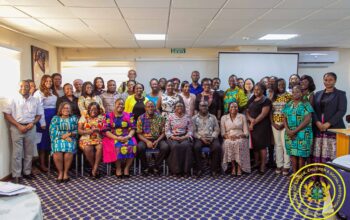This Supreme Court decision is a pivotal moment in the ongoing discourse surrounding the Human Sexual Rights and Family Values Bill, which has garnered significant attention both domestically and internationally. By dismissing Richard Dela Sky’s petition, the Court has affirmed that, at least in its current form, the legislative process behind the bill does not violate constitutional principles. However, the substance of the bill remains a lightning rod for controversy. The Supreme Court’s ruling suggests that the procedures employed in drafting and deliberating the bill align with the constitutional framework, even if the content of the bill is contentious. The Human Sexual Rights and Family Values Bill seeks to criminalize activities associated with LGBTQI advocacy, including promoting, funding, or indirectly supporting such causes. The penalties proposed in the bill would likely face intense scrutiny regarding human rights, freedom of expression, and the right to association. This decision may embolden lawmakers and proponents of the bill to advance it further in Parliament. It also reflects the judiciary’s stance on staying within the confines of constitutional interpretation without delving into the political and moral debates surrounding the bill. If passed into law, the bill could face backlash from international human rights organisations and potentially strain diplomatic relationships with nations advocating for LGBTQI rights. Critics argue that such legislation undermines fundamental freedoms, while supporters claim it reflects society’s values and moral fabric. The bill has not yet been passed into law, so there remains room for further debate and potential amendments. Advocacy groups, both for and against the bill, will likely intensify their campaigns, influencing public opinion and parliamentary action.
This case underscores the tension between traditional or religious values and universal human rights, a debate not unique to this nation but reflective of global challenges in balancing cultural norms with evolving views on inclusivity and equality. The Human Sexual Rights and Family Values Bill indeed sits at the intersection of deeply rooted cultural values and global human rights principles, making it one of the most polarizing legal and societal debates in Ghana today. The legislation is a defence against what they see as the imposition of foreign ideologies that conflict with Ghanaian traditions and religious values. Proponents believe the bill safeguards the traditional family structure, which they view as central to Ghanaian society. Many religious leaders and groups advocate for the bill as a necessary step to uphold societal morality and order. The bill infringes upon freedoms of expression, association, and equality under the law, all of which are enshrined in Ghana’s Constitution and international human rights treaties to which Ghana is a signatory. The bill, if passed, could lead to the persecution of individuals based on their sexual orientation, creating an atmosphere of fear and exclusion. Critics warn that such legislation could isolate Ghana from the international community, leading to potential sanctions or loss of foreign aid, as has happened in other countries with similar laws. Some argue that focusing on criminalizing LGBTQI advocacy diverts attention from more pressing national issues such as poverty, education, and healthcare.
Amanda Odoi’s separate legal challenge highlights the increasing involvement of advocates and civil society in contesting the bill. Her challenge may focus on. Whether the bill breaches constitutional provisions on equality and non-discrimination. How the proposed penalties align with Ghana’s obligations under international human rights laws. The potential chilling effect on civil liberties, such as freedom of speech and association, even for those not directly involved in LGBTQI advocacy. The bill has polarized Ghanaians, sparking discussions in homes, workplaces, and places of worship. It reflects broader societal tensions between modernity and tradition. The judiciary, as seen in its response to Richard Dela Sky’s petition, has so far focused on the constitutionality of the legislative process rather than the substantive content of the bill. However, future challenges like Odoi’s may push the Court to address substantive issues. Ghana’s handling of this issue is being closely watched worldwide. A balance between cultural preservation and adherence to global human rights norms will shape the country’s reputation and relationships. Amanda Odoi and Richard Dela Sky pointed to Articles 102 and 104 of the Constitution, which outline quorum and voting requirements in Parliament. Parliament cannot conduct business unless at least one-third of all members are present. Decisions in Parliament require a majority vote, with at least half of all members present. The petitioners claimed that Parliament did not meet these constitutional thresholds during critical stages of deliberation on the bill, rendering the legislative process flawed and unconstitutional. They sought the Supreme Court’s intervention to declare the bill unconstitutional on procedural grounds before it advanced further in the legislative process. While the Court dismissed the petitions, the issue of quorum requirements remains critical. Parliament must adhere to these rules to avoid challenges once the bill becomes law This ruling signals to lawmakers that procedural compliance will be scrutinized post-enactment. For opponents like Odoi and Sky, this decision means they must wait until the bill is enacted to mount any further legal challenges. This could delay judicial review and allow the bill’s effects to take root before potential invalidation. The decision clarifies that judicial review focuses on enforceable laws rather than draft bills. This precedent could discourage similar pre-enactment challenges in the future. While the procedural challenge has been dismissed, the substantive issues regarding human rights, freedoms, and the bill’s implications remain unresolved. These debates will likely intensify as the bill moves closer to potential passage. They must monitor the legislative process and prepare for a post-enactment challenge based on both procedural and substantive grounds. Ensuring quorum and strict adherence to constitutional processes will be critical to avoid vulnerabilities in the event of future legal scrutiny. Both proponents and opponents of the bill will likely intensify their lobbying efforts, with the debate shifting to Parliament and, eventually, the public arena.









